Author: Chad Nielsen
-
A Review: Seven Visions: Images of Christ in the Doctrine and Covenants
The recently-published book Seven Visions: Images of Christ in the Doctrine and Covenants by Adam S. Miller and Rosalynde F. Welch is a fantastic opportunity to listen in on a conversation between two brilliant theological minds as they explore seven different sections of the Doctrine and Covenants with a Christological focus. The book is structured as…
-
Annotated Doctrine and Covenants, 10 – 19
Continuing my series of annotated and formatted text of the Doctrine and Covenants, here are D&C 10 – D&C 19. As noted before, be aware that this is still a very rough draft based on the 1921 edition (for copyright reasons). I have a lot of work to go before I plan to look into…
-
A Review: Seeing: Themes in the Doctrine and Covenants
The seventh and final book out of the Themes in the Doctrine and Covenants series that I read is the one by Mason Kamana Allred on Seeing. This one and Philip Barlow’s entry on Time seemed like the most strange or esoteric topics in the series, but like Barlow’s book, Allred’s offers interesting insight and…
-
Who Translated the Book of Mormon?
What if the Book of Mormon was translated from an ancient language into modern English, but it wasn’t God or Joseph Smith who did the translation? If so, did Moroni translate the Book of Mormon? That’s the very theory that Roger Terry has suggested, based on Royal Skousen’s research into the Book of Mormon. He…
-
A Review: Divine Law: Themes in the Doctrine and Covenants
The sixth out of the seven books in the Themes in the Doctrine and Covenants series that I read is the one by Justin Collings on Divine Law. I admit that this one left me pleasantly surprised. I was expecting some sort of lawyerly analysis of how the commandments in the Doctrine and Covenants create…
-
Portuguese Panic for the Book of Mormon
A key moment in the Church’s establishment in different locations and cultures—including among countries like Brazil, where the Church officially has over one million members—is the translation of the Book of Mormon. Especially in earlier years, the effort was performed by missionaries with rudimentary knowledge of the language working with locals to create the translation,…
-
Annotated Doctrine and Covenants, 1 – 9
I mentioned previously that my big project for the year associated with Come, Follow Me is working on an annotated Doctrine and Covenants and closely related content. For this part of the project, I am going through the assigned reading each week and comparing every major edition of the text that I can find (including those…
-
A Review: Time: Themes in the Doctrine and Covenants
Family. Isn’t it about … time? Yes, and so is the Gospel in general, according to Philip L. Barlow.
-
A Review: Divine Aid: Themes in the Doctrine and Covenants
The fourth out of the seven books in the Themes in the Doctrine and Covenants series that I read is the one by Amy Easton on Divine Aid. As the title implies, the book posits that a repeated theme in the Doctrine and Covenants is divine aid, offered in a variety of ways. As with…
-
The Impact of Julian of Norwich
The woman known as Julian of Norwich was a mystic and a visionary who offered a theology that was focused on God’s love. She is a somewhat obscure figure, but one who is worth learning about. To that end, Fiona Givens discussed Julian of Norwich in a recent post at the Latter-day Saint history blog From…
-
A Review: Revelation: Themes in the Doctrine and Covenants
Continuing my reviews of the Themes in the Doctrine and Covenants series by Maxwell Institute, we come to the one on Revelation by Janiece Johnson. Of all the books in the series that I’ve read so far, this one is the one that leans the most heavily into the devotional and practical side of the…
-
Textual changes in Joseph Smith—History
My big project for the year associated with Come, Follow Me is working on an annotated Doctrine and Covenants and closely related content. For this part of the project, I am going through the assigned reading each week and comparing every major edition of the text that I can find (including those available through the Joseph…
-
The Adventures of Jacob Hamblin
With American Primeval, Netflix has once again put Mormonism in its sights as the subject in a drama, this time including the Mountain Meadows Massacre (the latest in a long line of portrayals of that event). While that event casts a long shadow over nineteenth century Mormonism’s experience in the western United States, there are…
-
A Review: Agency: Themes in the Doctrine and Covenants
As I mentioned recently, I’ve been excited about the Maxwell Institute’s “Themes in the Doctrine and Covenants” series. So far, I’ve read four books out of seven, and the entry by Terryl L. Givens on Agency has been my favorite. It’s a beautiful blend of theological and devotional reflection that leans heavier into the comparative…
-
A Review: Redeeming the Dead: Themes in the Doctrine and Covenants
The BYU Maxwell Institute has followed up their previous series of Brief Theological Introductions to the Book of Mormon with a similar series focused on Themes in the Doctrine and Covenants. I’ve been excited about them since I heard about them a couple years ago at a Global Mormon Studies conference, so I was very…
-
Wrestling with the Restoration: a Review
I highly recommend Wrestling with the Restoration: Why This Church Matters, by Steven C. Harper, for any member of The Church of Jesus Christ of Latter-day Saints. It is, at its heart, apologetics done well. In other words, it is a response to critics of the Church on a series of historic and praxis concerns.…
-
Chad Nielsen’s Favorite Reads, 2024 edition
As I did last year, in case it’s of use to anyone, I’ve prepared a list of my top 10 books that I’ve read this last year. (That can include books that were not published within the last year, though the majority of them were published in 2023 or 2024). Also, since I published 25…
-
Matthew Bowman on Joseph Fielding Smith
Joseph Fielding Smith was one of the movers and shapers of The Church of Jesus Christ of Latter-day Saints throughout the twentieth century. Although lacking in professional training in theology or history, his impact in those areas can still be felt today in the Church. In a recent interview at the Latter-day Saint history blog…
-
Resources for Come, Follow Me, 2025
Four years ago, I brought up resources to assist in study of the Doctrine and Covenants. There were some significant books that were mentioned, but not as many as I had assumed there would be. That launched me on a path that has led to my book, Fragments of Revelation: Exploring the Book of Doctrine…
-
Weekly Observance of the Sacrament
The Sacrament of the Lord’s Supper is one the most common ritual and use of set ritual prayers in The Church of Jesus Christ of Latter-day Saints. Weekly observance is a high frequency compared to many Christian denominations’ observance of similar rites and begs to question of why we observe it so frequently. David F.…
-
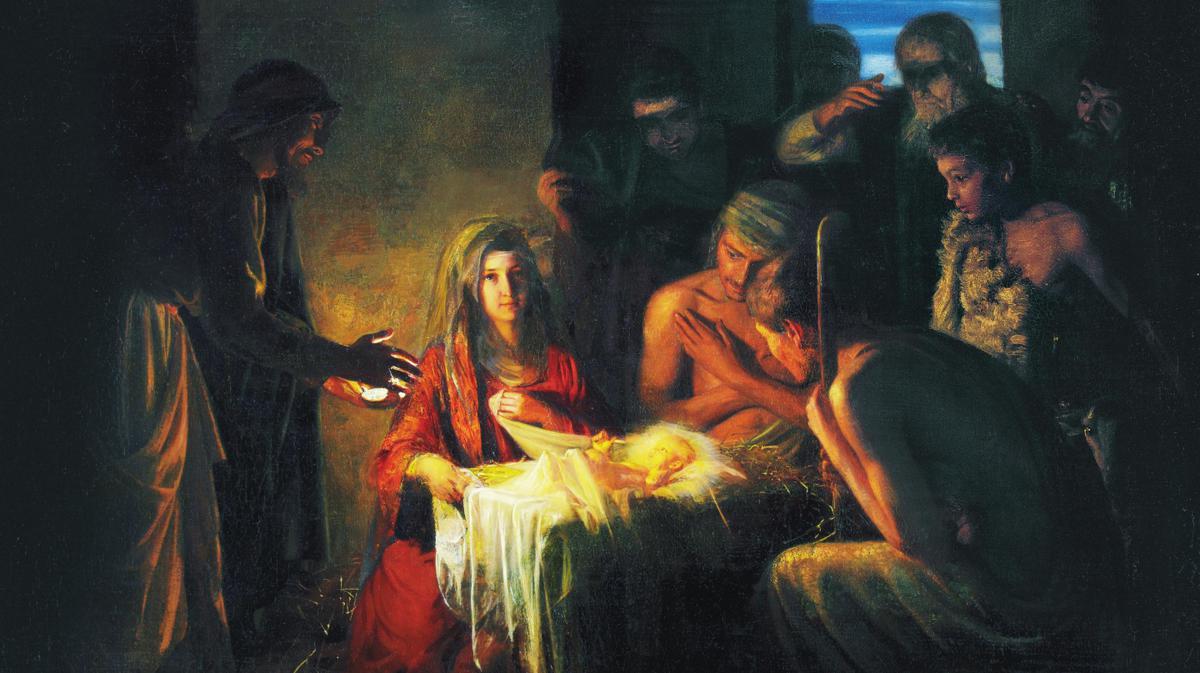
A Sample Christmas Program
As a musician in the Church, I’ve organized several Christmas programs for sacrament meetings over the years. The format that I’ve come to prefer is to have two narrators, one sharing Christmas and Advent themed thoughts, then another reading related scriptures to tell the story of Christmas. After each narrator shares a thought, a music…
-
Monogamy is the Rule, Part 2: Celestial Marriage and Plural Marriage
The process of coming to understand how sealing created kinship networks was complicated, however, and became intertwined with the development of plural marriage in The Church of Jesus Christ of Latter-day Saints. Because of this, it is sometimes difficult to disentangle sealings (and their promised blessings) from plural marriage, even though monogamous marriages are the…
-
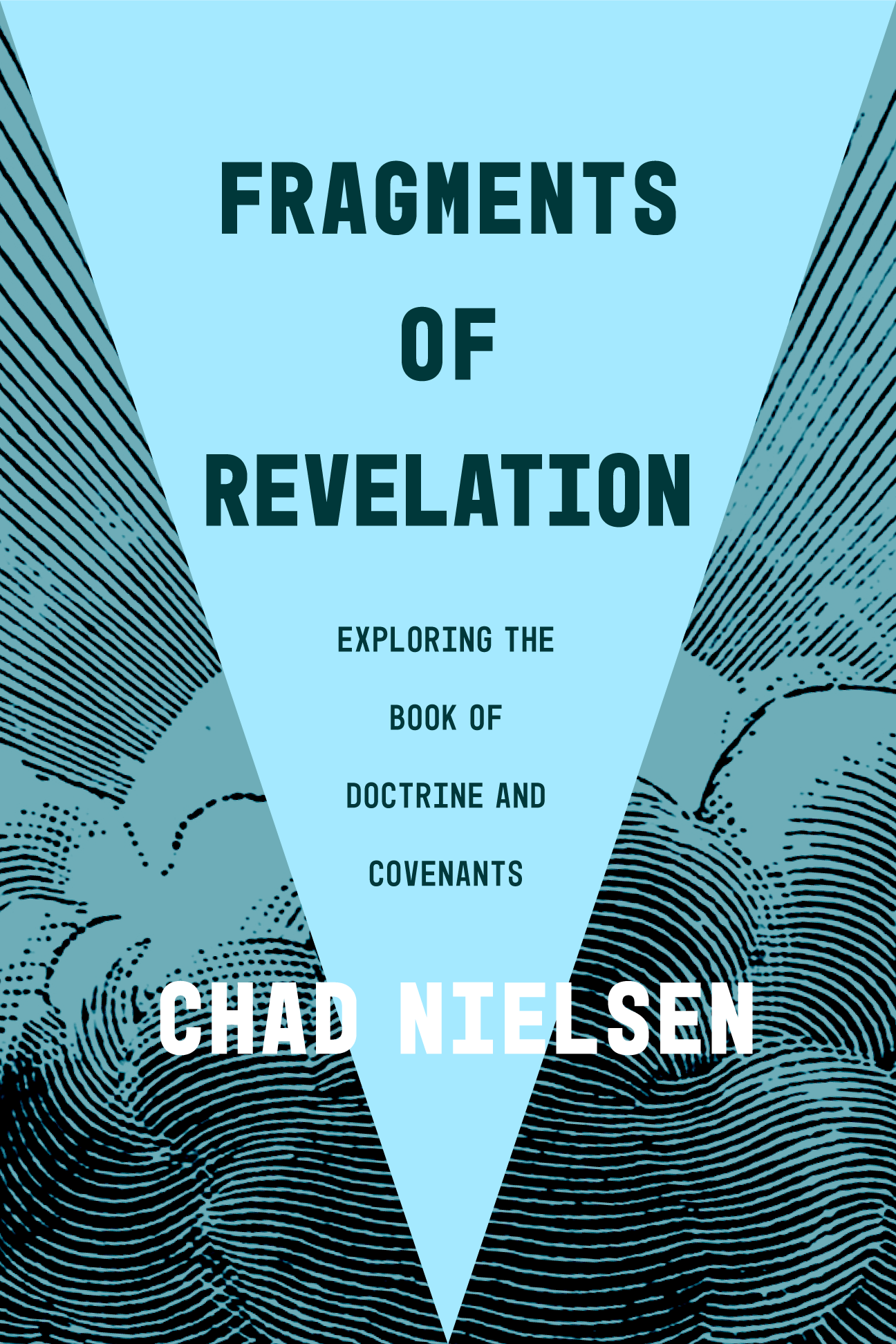
Book Update – Fragments of Revelation
Back in February, I announced that I have a book about the Doctrine and Covenants that is scheduled to be published by By Common Consent Press this December. After a lot of hard work by a lot of different people, I am happy to say that is still the case! Fragments of Revelation: Exploring the Book of Doctrine…
-
Monogamy is the Rule, Part 1: Revelation Adapted to the Circumstances
“Someday my prince will come, / in the Millennium, / and he will say to me, / ‘Will you be number three? / I will be true to you, / and you, and you, and you…’”
-
A Review: Come Up Hither to Zion: William Marks and the Mormon Concept of Gathering
Come Up Hither to Zion: William Marks and the Mormon Concept of Gathering by Cheryl L. Bruno and John S. Dinger is an enlightening biography that brings attention to a significant yet often overlooked figure in the early Latter Day Saint movement.
-
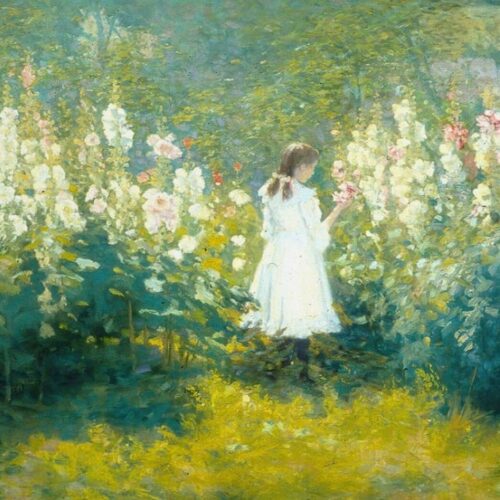
The Paris Art Mission
I love that Latter-day Saint temples tend to be well-decorated with artwork, including the temple murals. I still find it a bit painful that the murals were not preserved as part of the Salt Lake City Temple renovation, but still find the history of the original murals in the Salt Lake City Temple to be…
-
Slavery vs Unfree Labor in Utah
Slavery is one of the darkest subjects in the history of the United States. It was an issue that impacted so many lives (in ways that echo through to the present day) and arguments over it tore the nation apart. Utah Territory was no different in that they were caught in intense debates over the…
-
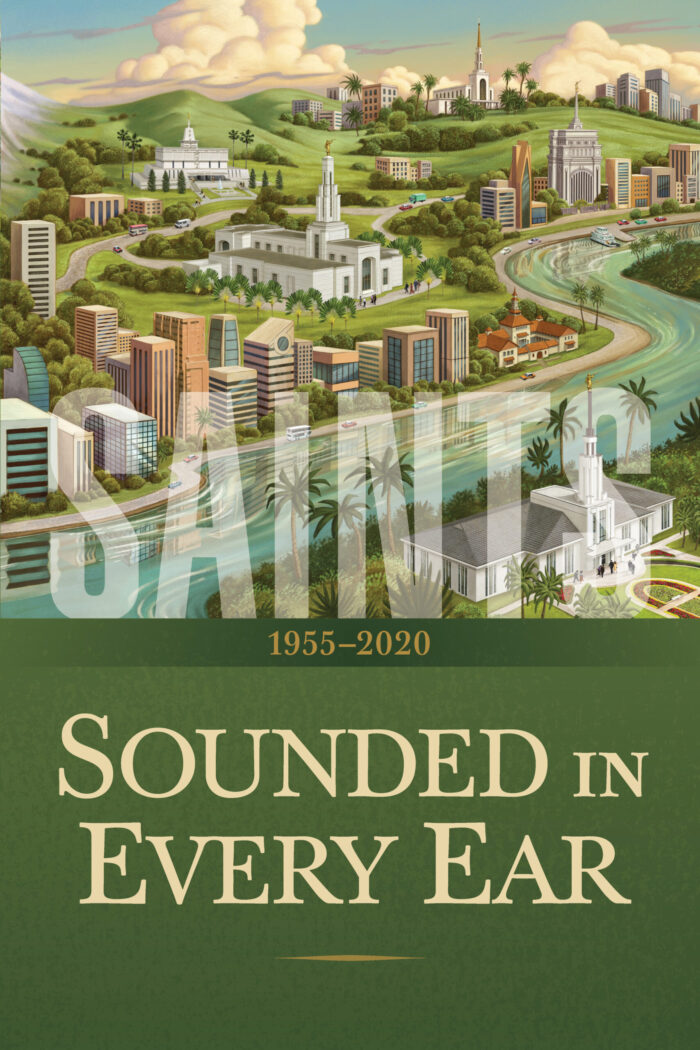
Saints, Volume 4: A Review
The fourth and final volume of Saints: The Story of the Church of Jesus Christ in the Latter Days was published today. This newest book, Sounded in Every Ear, tells the story of the Latter-day Saints from 1955 to 2020, bringing the history up nearly to the present day. It discusses an era in which…
-
Moroni and Temple Sites
Moroni is an important figure in Latter-day Saint lore. For example, I’ve written previously about how some authors have taken any mention of angels and the Book of Mormon in the same story as a reference to Moroni, whether that conclusion is warranted or not. But another area in which Moroni plays a role is…
-
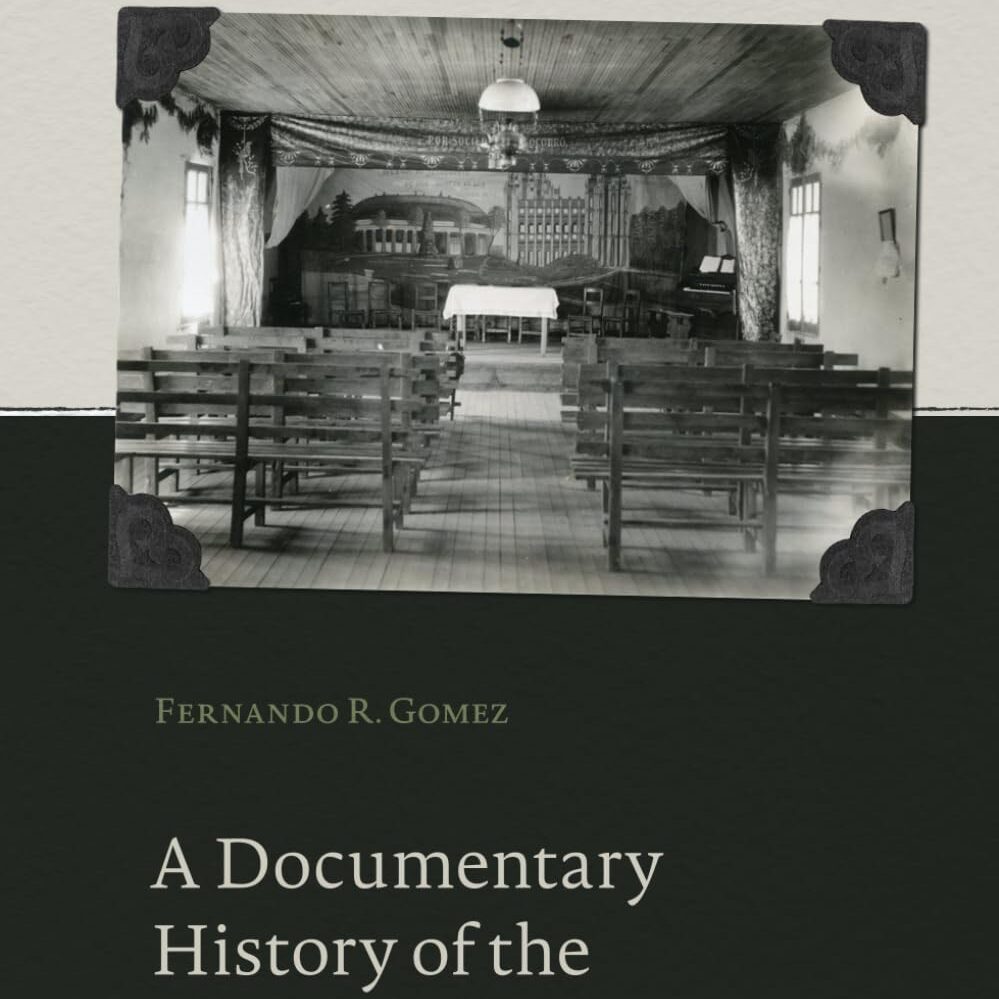
A Review: A Documentary History of the Church of Jesus Christ of Latter-Day Saints in Mexico, 1875-1946
A Documentary History of the Church of Jesus Christ of Latter-Day Saints in Mexico, 1875-1946 by Fernando R. Gomez (founder of The Museum of Mormon Mexican History) provides a streamlined and updated look into the history of the Church in Mexico.
